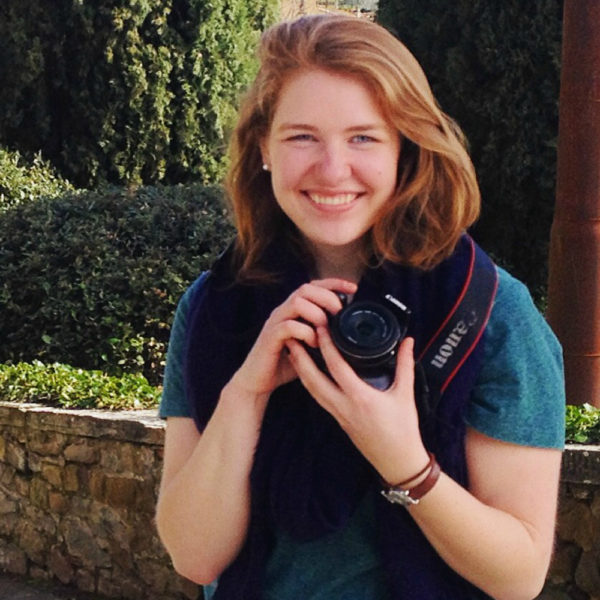Advertisement
This Surveillance Team In The Sky Tracks Endangered North Atlantic Right Whales In Cape Cod Bay
Resume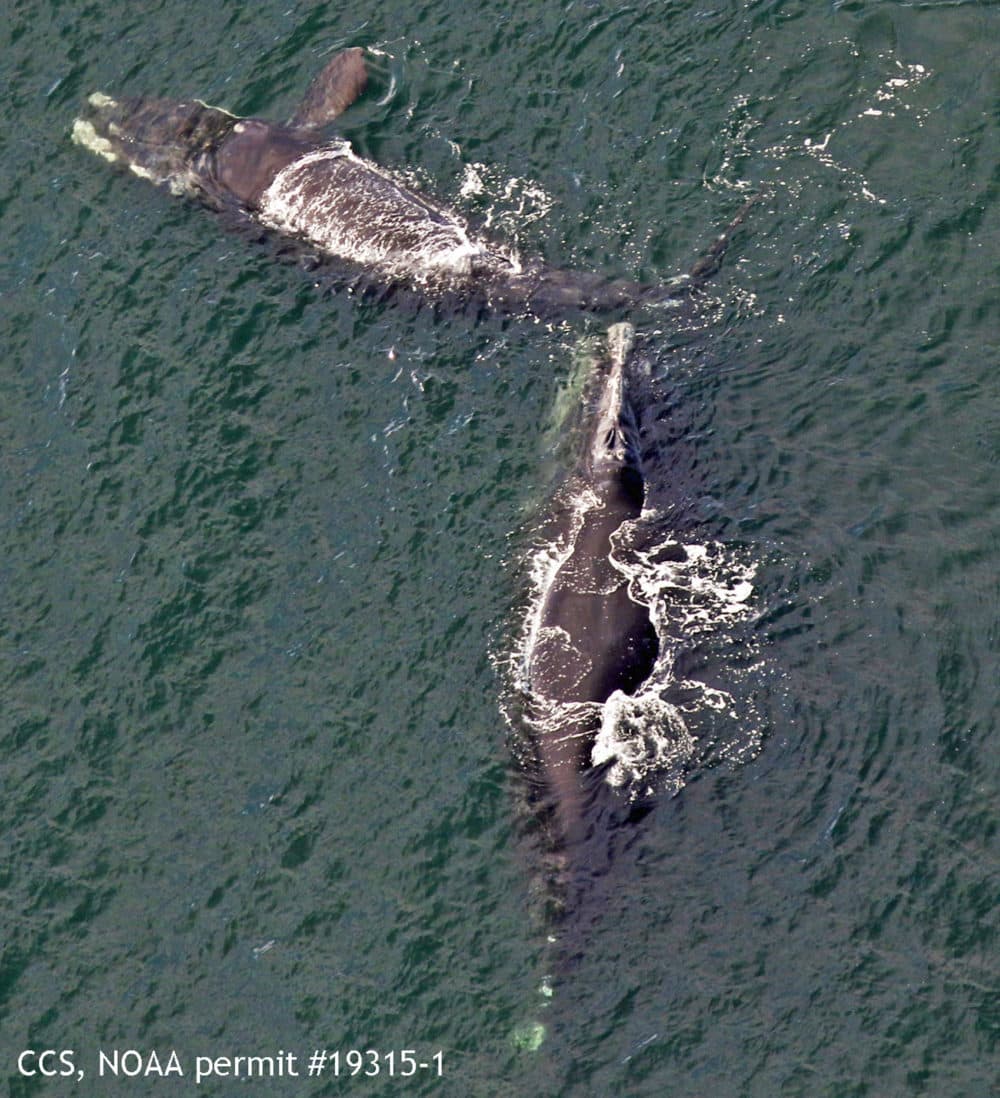
North Atlantic right whales have some good friends flying over Cape Cod Bay. Every morning from late fall through spring, weather permitting, the aerial surveillance team at Provincetown's Center for Coastal Studies takes off in a four-seat plane to track, photograph and collect data on the critically endangered species.
The whales are experiencing what conservationists refer to as an unusual mortality event. With deaths from rope entanglements and boat strikes contributing to a low birth rate, there are just over 400 right whales left.
Amy James, Brigid McKenna and Christy Hudak are three of the scientists conducting aerial surveillance. They took WBUR's Weekend Edition behind the scenes for a glimpse at their experience.
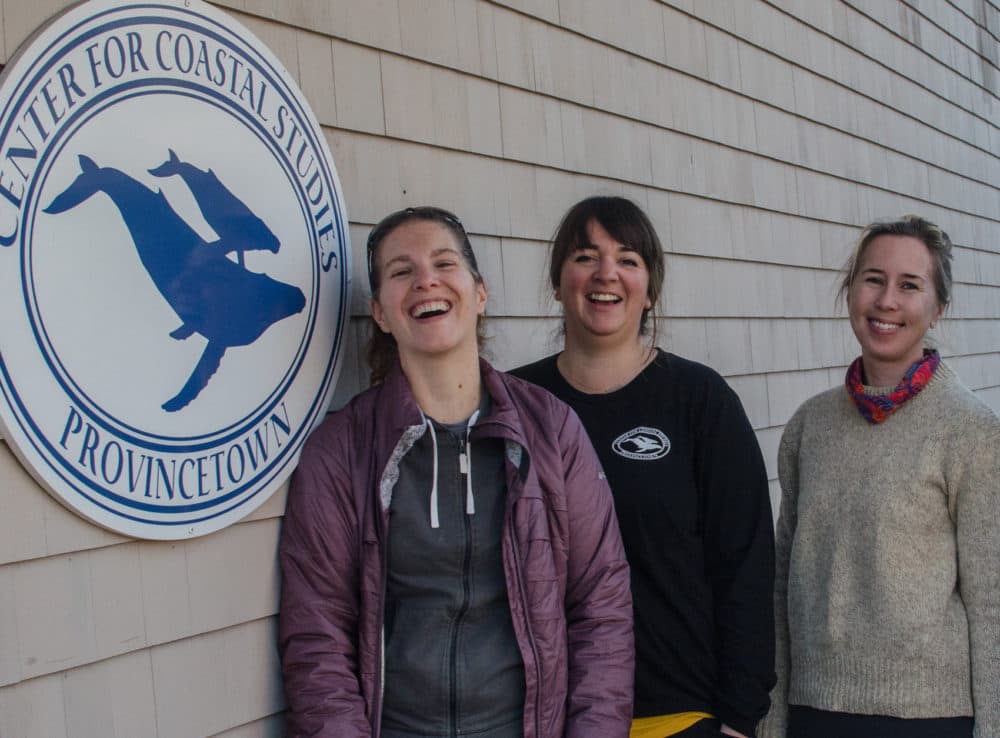
Interview Highlights
On how they prepare to fly 35,000 feet closer to the water than a commercial plane
Christy Hudak: "You have to know what you're doing in that plane, in case the plane does go down. So we do ditch training."
Amy James: "It's actually the underwater escape. We go up in a modified module to simulate what it's like to go down in a water landing."
Brigid McKenna: "It's pretty brutal. There's sometimes rain, sometimes they flip you upside down, sometimes they don't and [it] just rocks, lights on and off, there's lightning ... so no, it's not comforting."
On what it's like during a survey
James: "We go from talking about TV shows and what we're having for dinner that night and just general camaraderie in the plane and then all of a sudden it's drop that and go to business as soon as we have sightings [of whales] that we need to record and document. So for the photo side of things, we try to relay what we're seeing. We're describing individuals because there are important animals that we would want to drop down to lower altitudes for in order to document fully.
It's a lot of back and forth, a lot of prompting the data person, who's saying 'tell me what you're seeing.' "
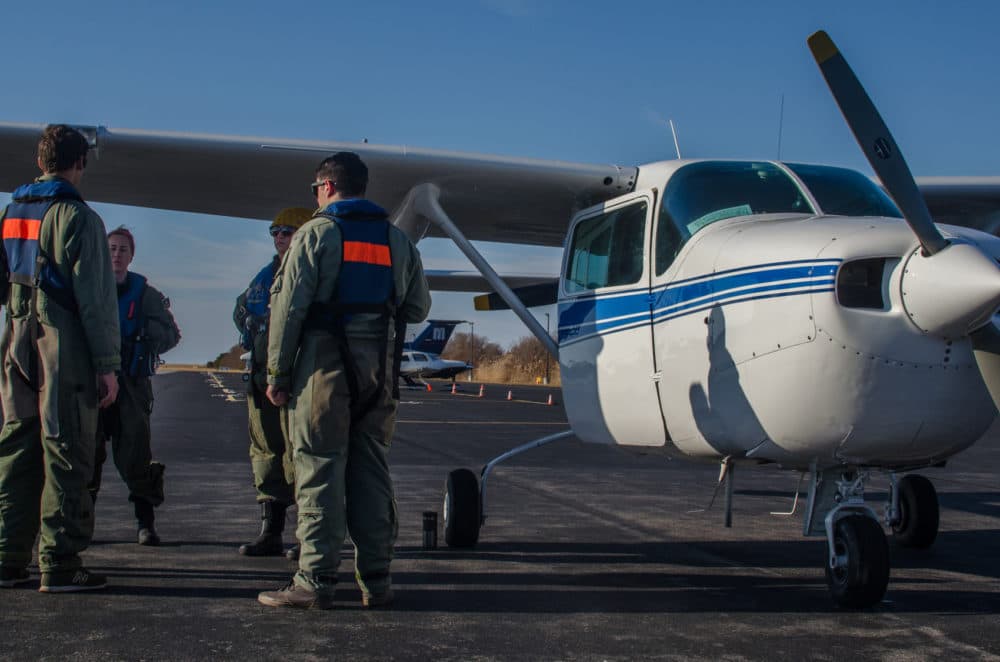
McKenna: "It's behaviors, associations, numbers, tentative IDs and when you're shooting. It's a lot of communication during the sighting, especially [as] the photo person. [It's] a lot of pressure to be photo, even though it's the fun job, because if you capture an individual you're wondering if there's [fishing] gear on it or if it looks like it has poor health."
James: "Yeah, it all requires communication. Some days we're better at it than others."
On why they do this job
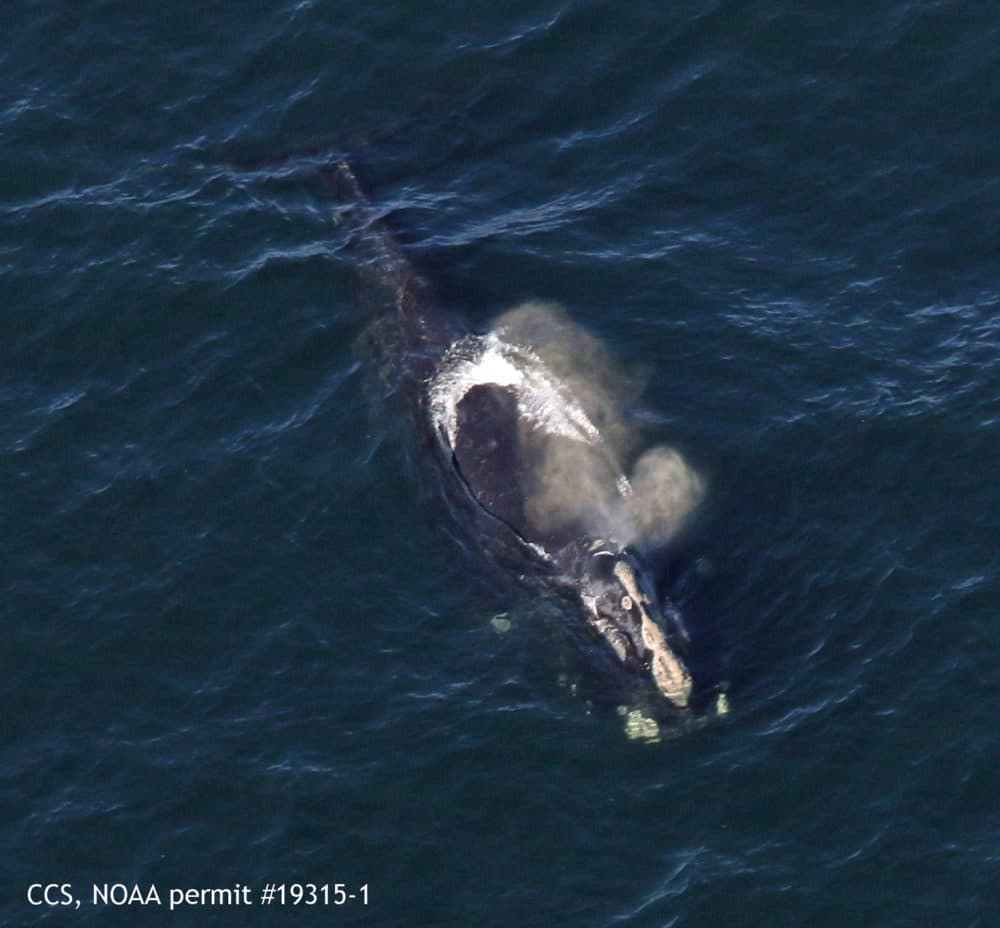
James: "We're kind of at a crossroads with the North Atlantic right whale. The species in general is in decline. They've been in decline before and we've made changes that have helped them rebound from that, but it didn't really fix the problem.
I think we're now just grasping that those policy changes weren't enough. And so that's really what this work at the Center has really been doing for decades, just trying to understand the wildlife that comes here — and why they come here and why that's changing, how it's changing in this current environment where we find our oceans are warming and sea level is rising — and we're having these really big paradigm shifts that we're trying to understand in real time. I think it's important to study it ... and try to make changes where you can."
Hudak: "[It's] amazing. You're in this tin can, this small little tin can and you're just gliding over this magnificent animal that's 40, 50, 60 feet long, and it's just an experience that is breathtaking. They come up and they blow, and you're just like, 'Wow. This is why I am doing this.' "
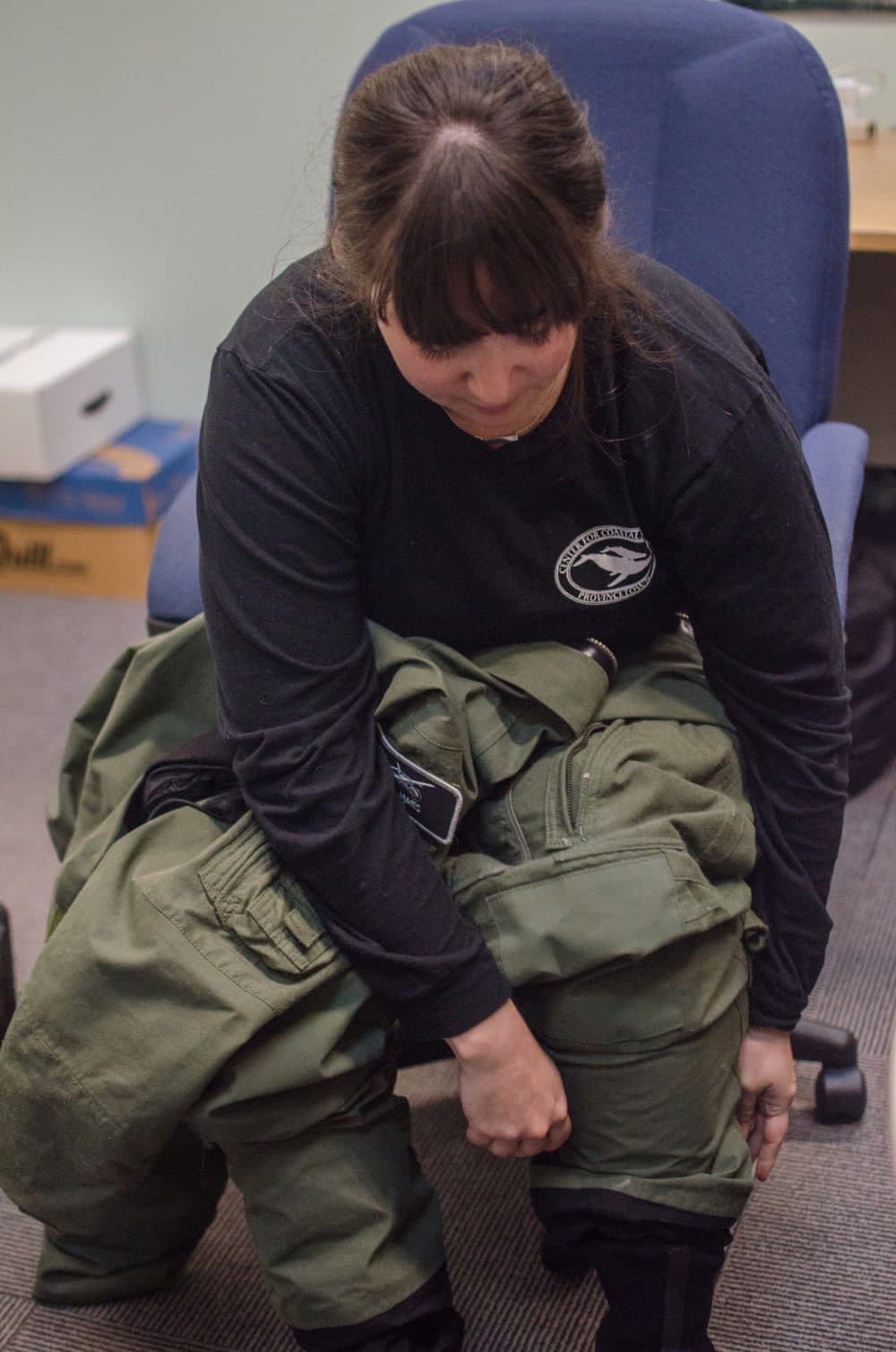
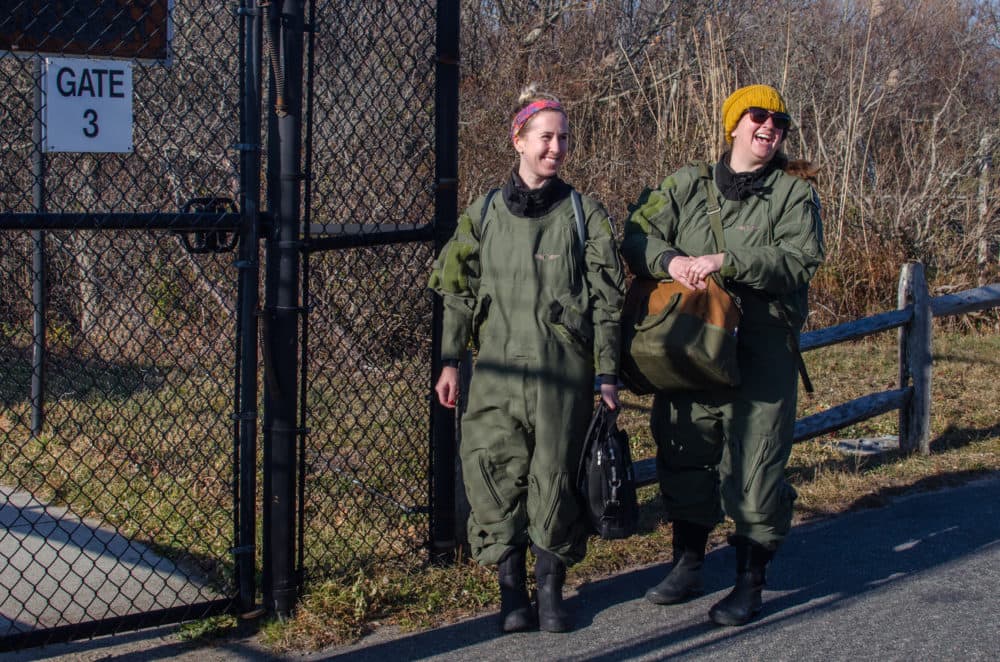
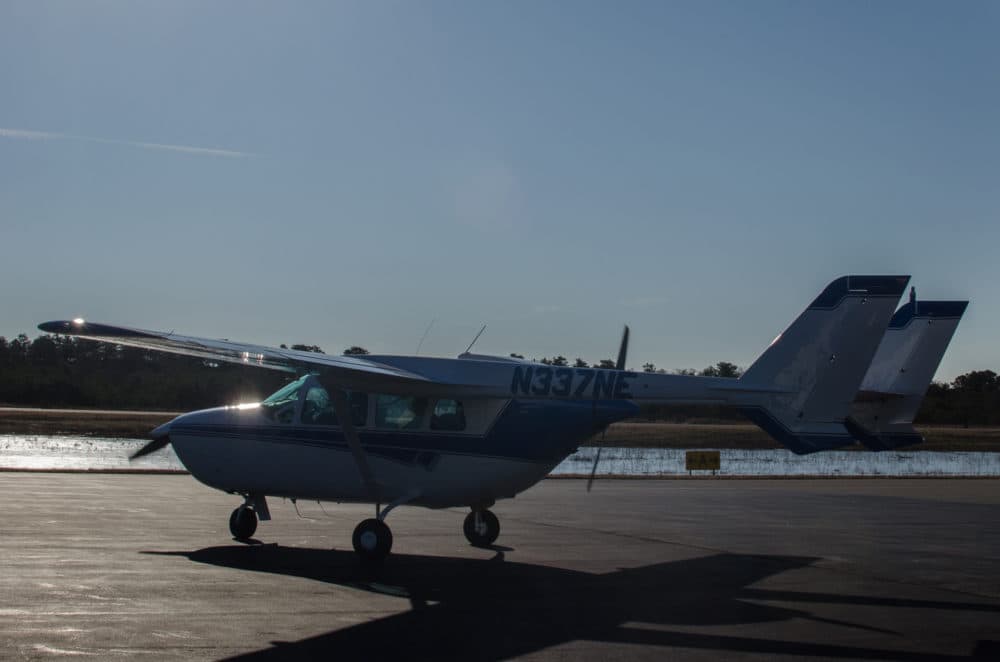
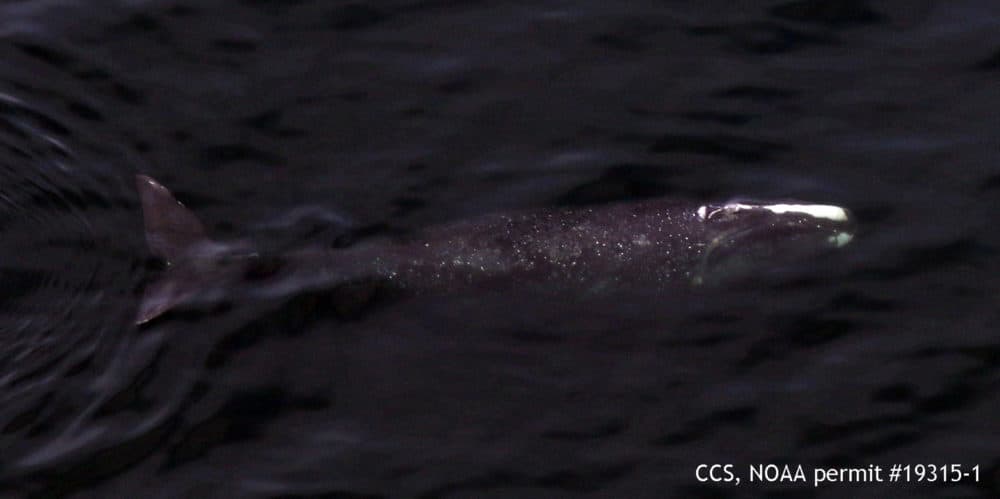
This segment aired on March 3, 2019.

